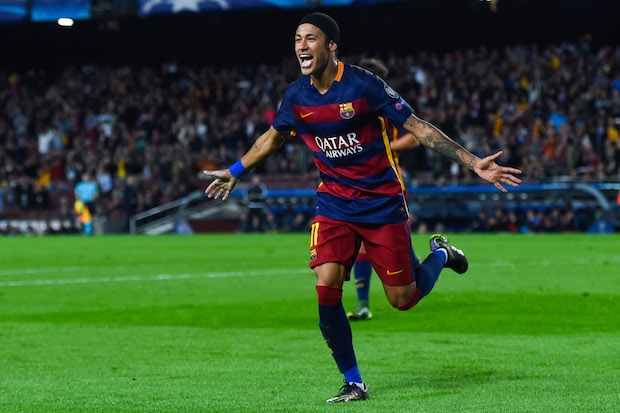Football is theatre, that much has always been obvious; but it’s also business. And though the rules of the game haven’t changed much on-field since 16th century Etonians codified the random kicking of an inflated pigskin, off the field the game has been in constant evolution. This summer has demonstrated, once again, that football is as much about ritual performances of capitalist peacocking as it is about twenty-two men going head to head.
As the transfer window creaks closed today, it is worth reflecting on an historic summer. Neymar’s £200m transfer from Barcelona to Paris Saint-Germain more than doubled the world transfer record and created a domino of wildly inflated transfers – including 20-year-old Ousmane Dembele’s £135.5m move from Borussia Dortmund to the Catalan club – that is still rippling out across the world. Barca are currently courting Philippe Coutinho, who joined Liverpool from fellow giants Inter for a paltry £8.5m in 2013. The mooted transfer fee for Coutinho in 2017 is £138m.
This is not just inflation. Inflation on that scale over the space of 4 years would be debilitating for the sport. Nor is it simply a reflection of an improvement in Coutinho’s quality as a footballer. The biggest change has been the injection of insane cash into the bloodstream of the Premier League via a TV rights deal that, last year, netted top flight clubs an income of £3.649 bn, and is due to deliver €5.1 bn this season. That’s compared to €3.2 bn in the Bundesliga, €3 bn in La Liga, and €2 bn in Ligue 1. The reasons why the Premier League is such a commodity are myriad, but the fast-paced, attacking football in England – which serves our teams so badly in continental football – has made it an essential export to markets in Asia.
The impact of this flush of money has been to drive prices up in transfers to English clubs. This is not a market-wide inflation (look at Blaise Matuidi’s £18.2m move from PSG to Juventus) but a reflection of the fact that English clubs are seen as moneybags, with even the lowly clubs of the Premier League able to pay top dollar. Signings like Lukaku for £75m and Morata for £58m are huge, but make sense within the context of Manchester United and Chelsea, both Champions League and domestic title chasers. What are more extraordinary are signings like these: Nathan Ake to Bournemouth for £20.5m, Marko Arnautovic to West Ham for £20m, Kelechi Iheanacho to Leicester for £24.9m, Gylfi Sigurdsson to Everton for £45m. In years gone by these would be the sort of routine, slightly dull, mid-table transfers that flew in under the radar. Now they carry the financial clout to compete with European giants.
Arsenal are one of the few teams who have turned a small profit (around £27m) this summer, and their fans have castigated the manager, Arsene Wenger, for his perceived frugality. Arsenal have historically taken care of the pennies because of repayments associated with the construction of the Emirates Stadium (something that might explain Spurs owner Daniel Levy’s reluctance to give Mauricio Pochettino carte blanche whilst the new White Hart Lane is still a building site), but with a fully functioning stadium now paid off, this coyness increasingly looks like an indulgence, especially since they still have the most expensive season tickets in the league, starting from £891.
And there’s the rub: ticket prices continue to rise. Campaigns like Twenty’s Plenty (which sought to reduce away ticket prices) fall flat. Sky Sports packages cost more and more, whilst the declining pub industry increasingly cannot afford the subscription to broadcast live. The beneficiaries of the influx of coinage into the English game are few and far between – owners of the handful of profitable clubs and players are the only ones to make out like bandits – whilst fans feel more and more fleeced. The performative nature of these headline making transfer fees is wearing thin; the game must do more to address fans’ concerns. The £200m blown on Neymar meant nothing to the Qatari state, who own PSG, but 14% of French people live in poverty, and yet are still being asked to cough up more Euros simply to support their team.
Something will have to break here – though with tetchy soundings from the Chinese government about their country’s private investments in football, it may be that the Asia bubble bursts before clubs can take a correct ethical stance. 2017 feels like the year that money in football went from being a sublime illustration of a beautiful game to a ridiculous caricature of its worst excesses. With World Cups coming up in Russia and then Qatar – two nations who have inconvenient relationships with wealth – the issue of money, and its sources, isn’t going away.







Comments